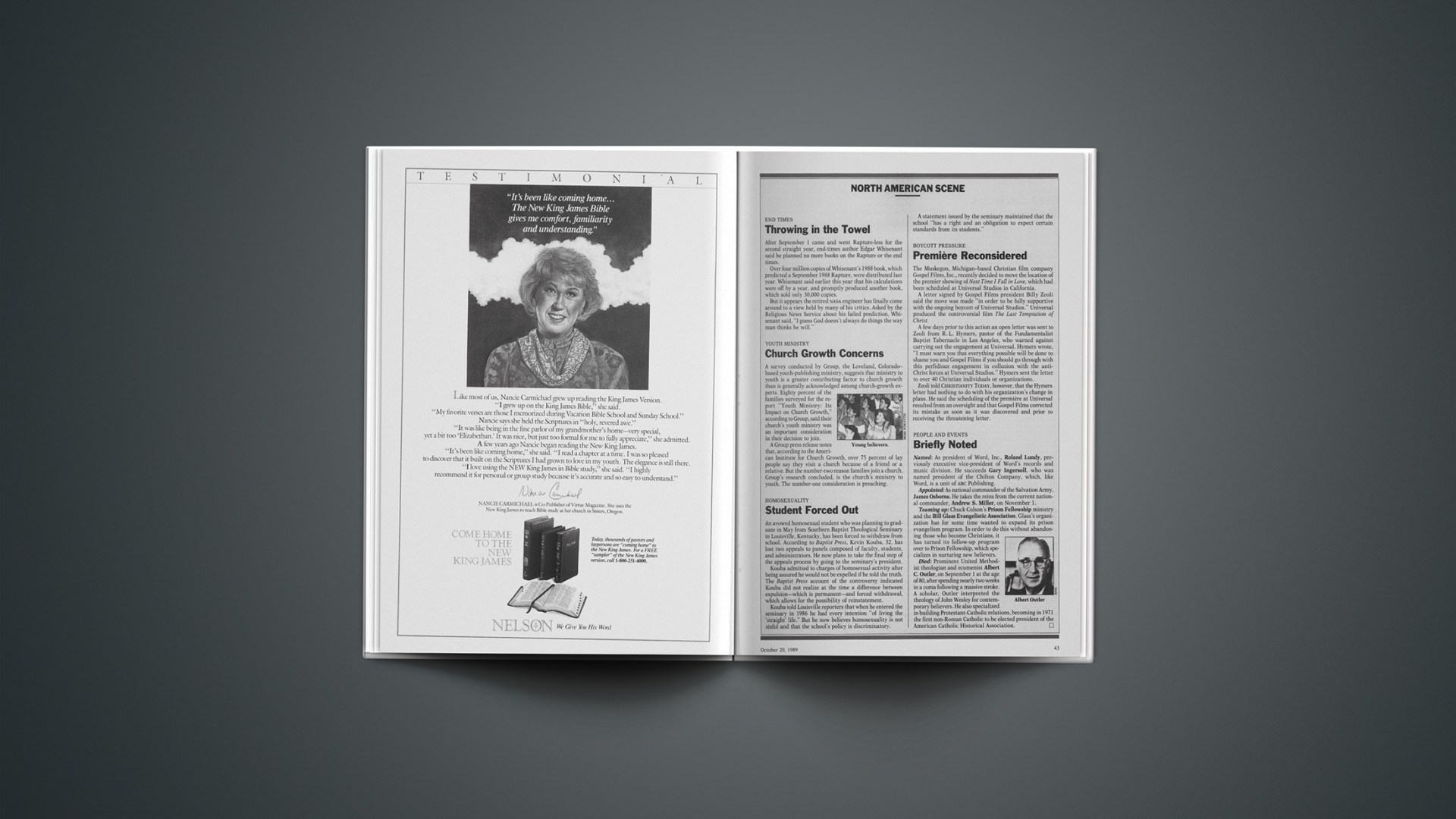Nearly a dozen years ago, U.S. Sen. Mark Hatfield (R-Oreg.) called together a small group of evangelical leaders. Revelations of financial scandal involving the Catholic Pallotine Fathers and others had led Congress to consider imposing regulations on charitable groups to ensure fiscal responsibility. Hatfield warned the evangelicals, “If you don’t do it, Congress will.” Congress held off, but the foundation was in place for the Evangelical Council for Financial Accountability (ECFA).
However, as ECFA leaders and members celebrated the group’s tenth anniversary last month in Washington, lingering fallout from more recent scandals and increased governmental scrutiny raised questions about whether Hatfield’s warning may yet come true.
In an address to 300 conference participants, Internal Revenue Service (IRS) Assistant Commissioner Robert Brauer said that in response to congressional pressure, the IRS has stepped up audits of religious organizations. “Don’t force us to have to report to Congress that there is a major problem and that Congress should consider remedial legislation,” he said.
Since the PTL scandal broke in 1986, Congress has been intensifying its look at nonprofit groups, and religious groups in particular (CT, Nov. 6, 1987, p. 36). Several bills have been introduced that would place additional regulations on charitable organizations. While most observers agree that restrictions on charitable fund raising will probably not go through this Congress, there are various proposals to toughen regulations surrounding “unrelated business.”
Under current law, tax-exempt groups must pay taxes on business income generated from activities not directly related to the purpose of the group. Many religious groups are concerned that in changing the unrelated-business regulations, Congress may go too far in determining what activities are unrelated to a ministry.
Rep. Andy Jacobs (D-Ind.), who is on the House Ways and Means Committee, told the group he does not believe a bill to tighten regulations will make it out of committee this year. However, Bob Smucker, of the nonprofit umbrella group Independent Sector, said he fears that “sooner or later” something will come before the full Congress.
ECFA’s president, Art Borden, said his organization has been attempting to convince Congress that new legislation to regulate nonprofits is unnecessary. “Those people that want to be unethical, dishonest, or illegal are going to do it regardless of ECFA or federal or state legislation,” he said.
ECFA continues to answer criticisms about its inability to prevent the financial misdealings at PTL, which had been an ECFA member from 1978 until 1986. “We were misled and deceived,” Borden said, adding that two national auditing firms had not signaled anything amiss in their audits of PTL.
Beginning in 1990, however, as an added insurance that the 575 members are complying with ECFA’s standards, the organization will begin a series of on-site visits for a look at the practices of its members. Borden said ECFA hopes to complete between 20 and 25 such visits a year.
No matter what the final outcome of new legislation, ECFA has garnered official appreciation for its efforts in the area of accountability. Commissioner Brauer paid tribute to ECFA’s efforts to encourage ethical practices in charitable solicitations. He noted the standards included in ECFA’s “Donors’ Bill of Rights” could have been written by the IRS.
Borden hopes that in the next decade more organizations and other segments of the philanthrophic community will adhere to ECFA’s standards of ethical financial practice and public disclosure. His goal is to have between 5,000 and 10,000 members by the year 2000, he said.
Borden said ECFA’s major role has been to “help hundreds of organizations build high ethical standards into their fund-raising and reporting practices, and to help maintain public confidence in ministries that are doing good work.” He added, “Pulling together, we can make a significant impact on the charitable community.”










